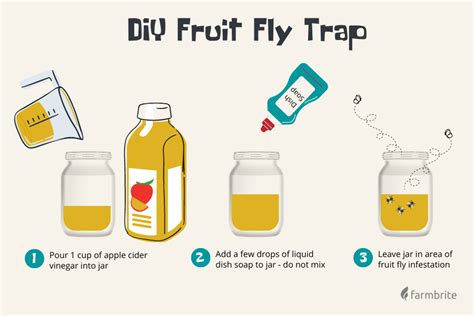How to Kill Fruit Flies: A Comprehensive Guide
Fruit flies. Those tiny, buzzing pests that seem to magically appear in your kitchen, drawn to the scent of overripe fruit and sugary spills. They're a nuisance, but thankfully, there are several effective ways to get rid of them – and prevent them from returning. This guide will equip you with the knowledge and strategies to win the war against fruit flies.
Understanding the Enemy: Fruit Fly Life Cycle
Before we delve into extermination, understanding the fruit fly life cycle is crucial. Knowing how they reproduce helps us target their weaknesses. Fruit flies lay their eggs in decaying organic matter, which hatches into larvae within 24 hours. These larvae then pupate, eventually emerging as adults ready to mate and repeat the cycle. This rapid reproduction is why a quick response is essential.
Effective Methods to Eliminate Fruit Flies
Here's a breakdown of effective methods, from simple home remedies to more robust approaches:
1. The Classic Trap: Wine and Vinegar
This is a time-tested method, leveraging fruit flies' attraction to fermented substances.
- What you need: A small bowl, apple cider vinegar (or red wine), a few drops of dish soap, and some plastic wrap.
- How to do it: Combine the vinegar and dish soap in the bowl. The soap reduces surface tension, preventing the flies from escaping once they land. Cover the bowl loosely with plastic wrap, poking small holes for the flies to enter.
2. The Fruit Fly Zapper: A More Aggressive Approach
If a gentle trap isn't cutting it, consider a more direct approach. Electric fly zappers are efficient at eliminating adult flies. However, remember that they only target the adults, not the larvae or eggs. You still need to address the source of the infestation.
3. Eliminating Breeding Grounds: The Root of the Problem
This is arguably the most important step. Fruit flies need decaying organic matter to reproduce. Thoroughly clean your kitchen:
- Empty the trash: Regularly empty all trash cans, paying attention to any spilled food or juice.
- Clean drains: Fruit flies can breed in drains, so pour boiling water down them regularly.
- Wipe down counters: Wipe down all surfaces, focusing on areas where food might spill.
- Check fruit bowls: Discard any overripe or rotting fruit immediately.
4. Preventative Measures: Keeping them Away
Preventing future infestations is key. Here are some preventative measures:
- Keep fruit in the refrigerator: Store ripe fruit in the fridge to prevent attracting flies.
- Clean up spills immediately: Address spills quickly to prevent breeding grounds from forming.
- Use sealed containers: Store food in airtight containers to limit access for flies.
Choosing the Right Strategy: Tailoring Your Approach
The best approach depends on the severity of your infestation. For a minor infestation, the vinegar trap might suffice. However, a more significant problem might require a combination of traps, thorough cleaning, and potentially an electric zapper. Remember that consistent cleaning and preventative measures are your best defense against future fruit fly invasions.
Frequently Asked Questions (FAQs)
Q: How long does it take to get rid of fruit flies?
A: It depends on the severity of the infestation. With diligent cleaning and trapping, you should see a significant reduction within a few days.
Q: Are fruit flies harmful?
A: While not typically disease carriers, large infestations can be annoying and unpleasant.
Q: What if I still have fruit flies after trying these methods?
A: If the problem persists, consider contacting a pest control professional. They have access to more advanced methods for eliminating stubborn infestations.
By following these steps, you can effectively eliminate fruit flies and prevent future infestations. Remember, a multi-pronged approach that combines eliminating breeding grounds, trapping adult flies, and preventative measures is the most successful strategy. Enjoy a fruit fly-free kitchen!
